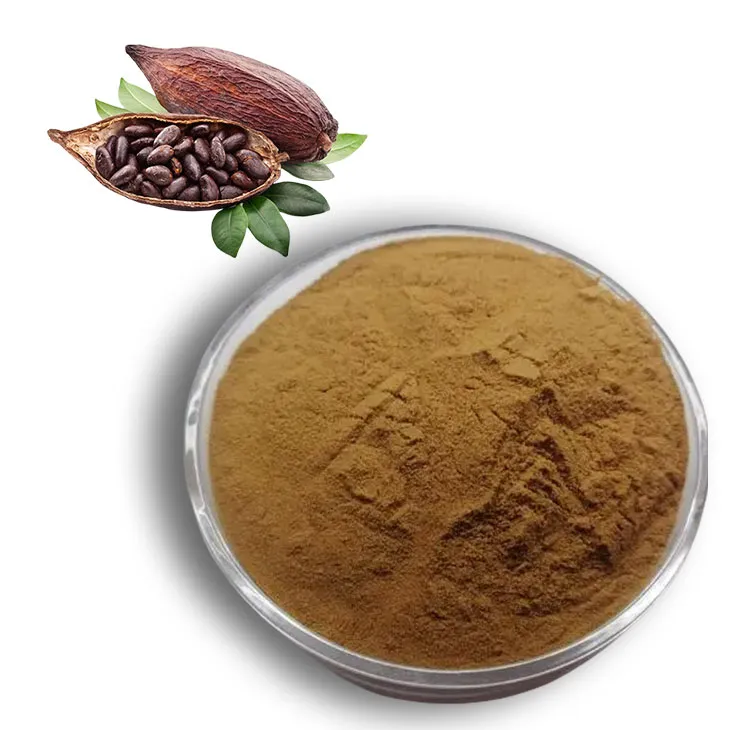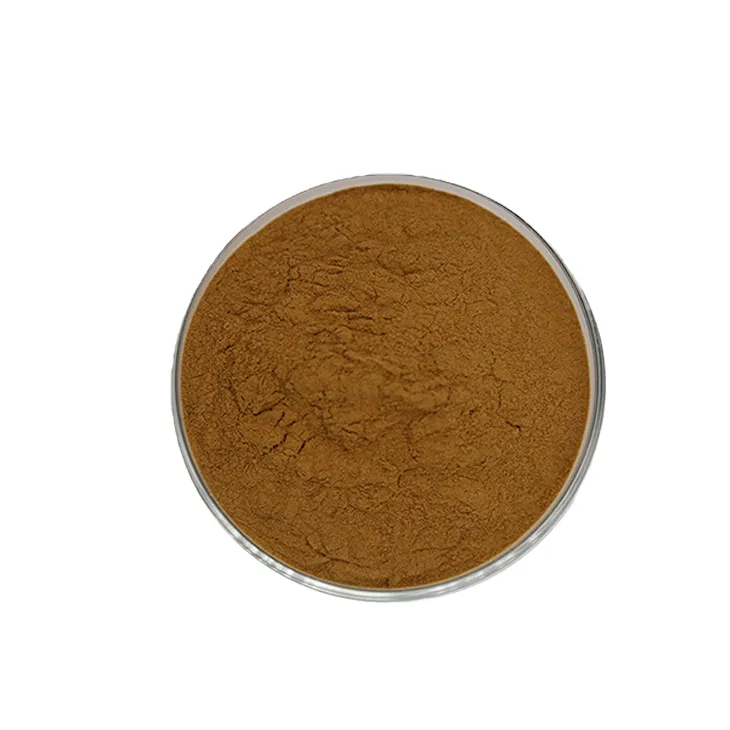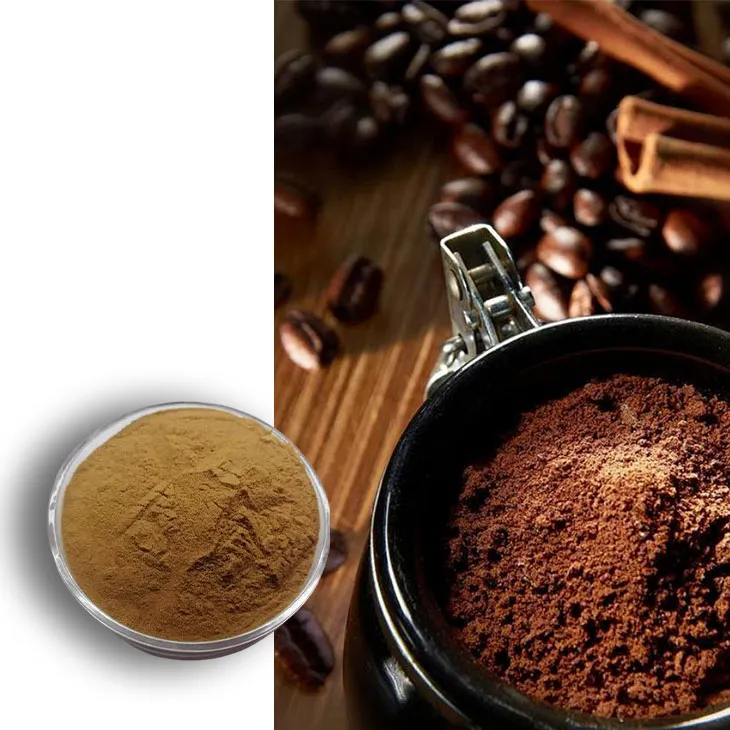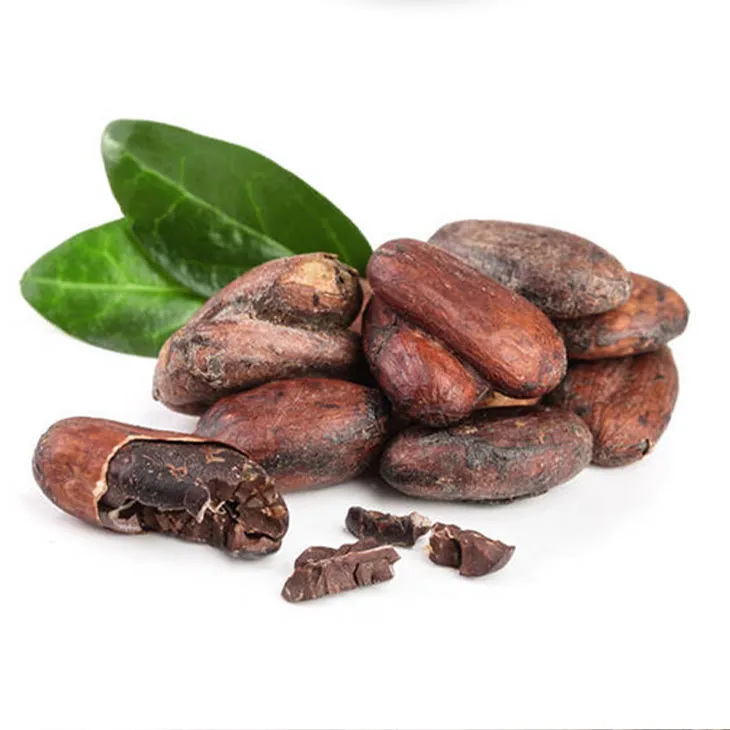- 0086-571-85302990
- sales@greenskybio.com
The best cocoa extracts in 2024.
2024-12-01

Introduction
As we step into 2024, the world of Cocoa Extracts is becoming more and more exciting. Cocoa Extract, a concentrated form of the goodness from cocoa beans, has a wide range of applications in the food and beverage industry, as well as in the field of health and wellness. This article aims to provide a comprehensive exploration of the best Cocoa Extracts in 2024.

Fermentation and Drying: Keys to Cocoa Extract Quality
Fermentation is a crucial process in the production of high - quality cocoa extract. During fermentation, the sugars in the cocoa beans are converted into acids, alcohols, and esters. This chemical transformation not only affects the flavor but also the nutritional profile of the final cocoa extract.
Well - fermented cocoa beans tend to have a more complex flavor profile. The acids produced during fermentation, such as lactic acid and acetic acid, contribute to a tangy note in the cocoa extract. The alcohols and esters are responsible for the fruity and floral aromas that are highly desirable in premium cocoa extracts.
Drying is the next important step. After fermentation, the cocoa beans need to be dried properly. Improper drying can lead to mold growth or a loss of flavor. Slow - drying methods at a controlled temperature and humidity are often preferred as they allow the beans to retain their natural flavors and aromas.
For example, in some traditional cocoa - growing regions, the beans are dried in the sun. This natural drying method can give the cocoa extract a unique, earthy flavor. However, modern drying techniques, such as using drying chambers with precise temperature and humidity control, can also produce high - quality cocoa extracts with consistent quality.

Organic vs. Conventional Cocoa Extracts
Organic Cocoa Extracts have gained significant popularity in recent years. Organic cocoa is grown without the use of synthetic pesticides, fertilizers, or genetically modified organisms (GMOs). This has several implications for the quality and properties of the cocoa extract.
From a health perspective, some consumers believe that organic cocoa extracts are "purer" and free from potentially harmful chemical residues. Organic farming practices also tend to be more environmentally friendly, promoting soil health and biodiversity.
In terms of flavor, organic cocoa extracts can sometimes have a more "natural" and unadulterated taste. However, this can also vary depending on the specific variety of cocoa bean and the processing methods used.
Conventional Cocoa Extracts, on the other hand, are produced using traditional farming methods that may involve the use of pesticides and fertilizers. While these extracts can also be of high quality, they may carry some traces of chemicals used in the farming process.
Conventional cocoa farming often allows for higher yields, which can make the cocoa extracts more affordable. In the flavor department, conventional cocoa extracts can be just as rich and complex as their organic counterparts, depending on the quality of the beans and the expertise of the producers.

Ranking the Best Cocoa Extracts: Taste, Aroma, and Nutritional Value
Taste
When it comes to taste, several factors come into play. The variety of cocoa bean is a primary determinant. For example, Criollo cocoa beans are known for their delicate and nuanced flavors. Cocoa extracts made from Criollo beans often have a smooth, buttery taste with hints of nuts and vanilla.
Another important factor is the processing method. Cocoa extracts that are minimally processed tend to retain more of the natural flavors of the beans. For instance, cold - pressed cocoa extracts can have a fresher, more vibrant taste compared to those that are processed using high - heat methods.
- Some of the top - tasting cocoa extracts in 2024 are those that blend different varieties of cocoa beans. This creates a more complex and well - rounded flavor profile.
- Also, the addition of natural flavor enhancers like sea salt or a touch of cinnamon can elevate the taste of cocoa extracts to a whole new level.
Aroma
The aroma of cocoa extract is an important aspect of its quality. Aroma is closely related to the fermentation and drying processes, as well as the type of cocoa bean.
Fine - aroma cocoa beans, such as those from Madagascar, are renowned for their intense and unique aromas. Cocoa extracts made from these beans can have a fruity, floral scent, reminiscent of berries or jasmine.
The roasting process also plays a role in developing the aroma. Lightly roasted cocoa beans can produce extracts with a more delicate aroma, while more intense roasting can bring out deeper, more chocolatey scents.
- Cocoa extracts with a well - balanced aroma, where the fruity, floral notes blend harmoniously with the chocolatey base, are highly prized in 2024.
- Some producers are also experimenting with adding natural extracts like orange blossom or lavender to enhance the overall aroma of the cocoa extract.
Nutritional Value
Cocoa extract is rich in a variety of nutrients and bioactive compounds. One of the most well - known is flavonoids, which have antioxidant properties. These flavonoids can help reduce inflammation in the body and may have potential benefits for heart health.
Cocoa also contains minerals such as magnesium, iron, and zinc. Magnesium is important for muscle and nerve function, while iron is essential for oxygen transport in the blood.
The nutritional value of cocoa extract can vary depending on how it is processed. For example, over - processing can lead to a loss of some of the beneficial compounds. Cocoa extracts that are minimally processed and made from high - quality beans tend to retain more of their nutritional value.
- Some cocoa extracts in 2024 are being marketed specifically for their high flavonoid content, targeting health - conscious consumers.
- Others are fortified with additional vitamins or minerals to enhance their nutritional profile.

Conclusion
In conclusion, the search for the best cocoa extracts in 2024 is a multi - faceted endeavor. The quality of cocoa extract is influenced by factors such as fermentation, drying, whether it is organic or conventional, and its taste, aroma, and nutritional value.
Consumers have a wide range of options to choose from, depending on their preferences and needs. Whether it is for use in a decadent chocolate dessert, a healthy smoothie, or as a dietary supplement, the right cocoa extract can make all the difference.
FAQ:
Question 1: How does fermentation technique influence the quality of cocoa extract?
Fermentation is a crucial step in cocoa processing. During fermentation, enzymes break down complex compounds in the cocoa beans. Well - controlled fermentation can enhance the flavor precursors in the beans. It helps in the development of desirable flavors and aromas in the cocoa extract. If the fermentation is too short or too long, it can lead to off - flavors or incomplete development of the characteristic cocoa taste.
Question 2: What are the differences between organic and conventional cocoa extracts?
Organic cocoa extracts are made from cocoa beans that are grown without the use of synthetic pesticides, fertilizers, or genetically modified organisms (GMOs). Conventional cocoa extracts may use these inputs. In terms of taste, some consumers claim that organic cocoa extracts have a purer, more natural flavor. From a nutritional perspective, organic cocoa may have a slightly different nutrient profile due to the absence of chemical residues. However, both types can offer rich chocolatey flavors and various health - related compounds like flavonoids.
Question 3: How is the nutritional value of cocoa extract determined?
The nutritional value of cocoa extract is determined by several factors. The presence of flavonoids, such as epicatechin and catechin, is a significant aspect. These compounds have antioxidant properties. Minerals like magnesium, iron, and zinc are also important components. The amount of fat, particularly the type of fatty acids present (such as oleic acid), affects its nutritional profile. Additionally, the levels of sugar and fiber can vary depending on the processing methods, which in turn influence the overall nutritional value.
Question 4: What are the key factors to consider when ranking cocoa extracts based on taste?
When ranking cocoa extracts based on taste, several factors are crucial. The intensity and complexity of the chocolate flavor play a major role. A well - balanced cocoa extract should have a harmonious combination of bitter, sweet, and acidic notes. The smoothness of the taste on the palate is also important. The presence of any off - flavors, such as a burnt or sour taste, can lower its ranking. Additionally, the aftertaste, whether it is long - lasting and pleasant, contributes to the overall taste evaluation.
Question 5: How does drying technique affect the aroma of cocoa extract?
Drying technique significantly impacts the aroma of cocoa extract. Slow and gentle drying methods, such as sun - drying or low - temperature drying, can preserve the volatile aroma compounds in the cocoa beans. If the drying is too rapid or at a high temperature, some of these volatile compounds may be lost, leading to a less intense or altered aroma. Proper drying also helps in preventing mold growth, which can introduce unwanted odors and affect the overall aroma quality of the cocoa extract.
Related literature
- The Influence of Fermentation on Cocoa Quality"
- "Organic vs. Conventional Cocoa: A Comparative Analysis"
- "Nutritional Components in Cocoa Extract: A Comprehensive Review"
- "Evaluating the Taste Profiles of Cocoa Extracts"
- "The Role of Drying in Cocoa Aroma Development"
- ▶ Hesperidin
- ▶ Citrus Bioflavonoids
- ▶ Plant Extract
- ▶ lycopene
- ▶ Diosmin
- ▶ Grape seed extract
- ▶ Sea buckthorn Juice Powder
- ▶ Fruit Juice Powder
- ▶ Hops Extract
- ▶ Artichoke Extract
- ▶ Mushroom extract
- ▶ Astaxanthin
- ▶ Green Tea Extract
- ▶ Curcumin
- ▶ Horse Chestnut Extract
- ▶ Other Product
- ▶ Boswellia Serrata Extract
- ▶ Resveratrol
- ▶ Marigold Extract
- ▶ Grape Leaf Extract
- ▶ New Product
- ▶ Aminolevulinic acid
- ▶ Cranberry Extract
- ▶ Red Yeast Rice
- ▶ Red Wine Extract
-
Stevia Extract
2024-12-01
-
Coconut Water Powder
2024-12-01
-
Clove Powder
2024-12-01
-
Curcuma Longa Extract/Turmeric extract
2024-12-01
-
Okra Extract
2024-12-01
-
Grape Seed Extract
2024-12-01
-
Diosmin
2024-12-01
-
American Ginseng Root Extract
2024-12-01
-
Red Vine Extract
2024-12-01
-
Ivy Extract
2024-12-01





















